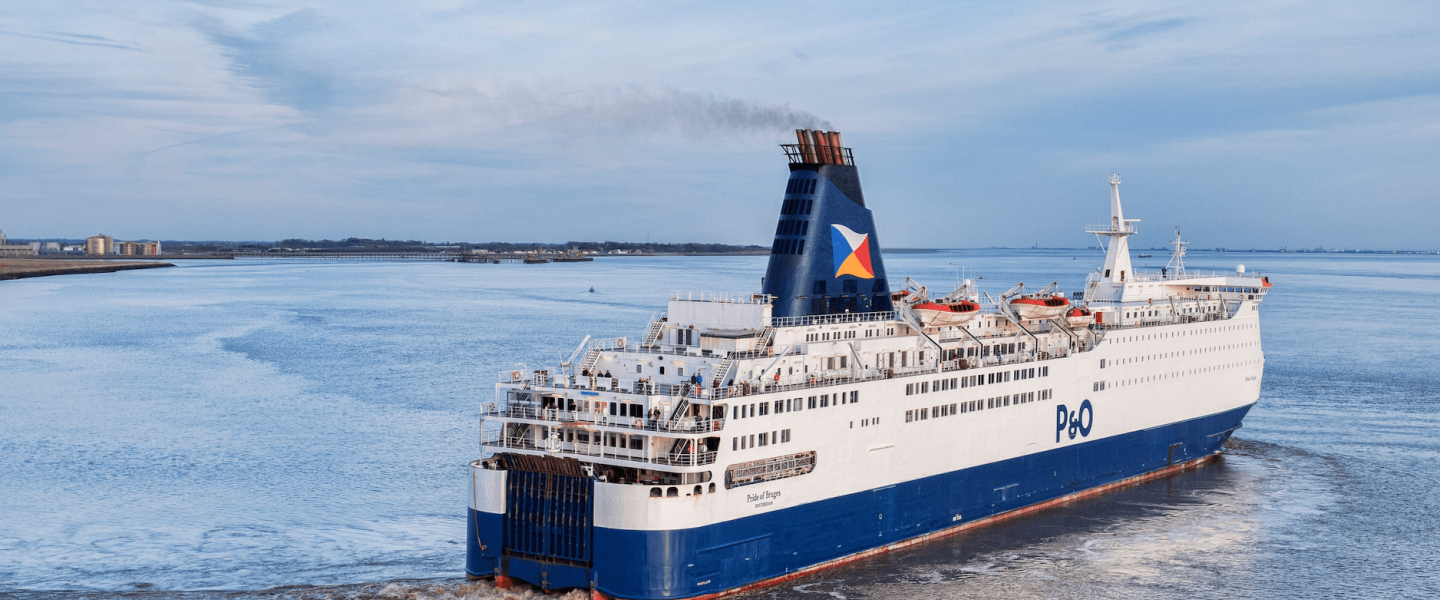Two years have passed since the shocking and controversial dismissal of nearly 800 seafarers by P&O Ferries, a move that was executed without any notice or consultation. Yet, the questions about the company's treatment of its workers continue to linger.
Allegations of Exploitation
A recent investigation by ITV and The Guardian revealed that an ongoing legal loophole has allegedly allowed some crew members to be paid less than half of the UK minimum wage, as well as allegations of exploitative labour practices.
Despite promises made by the British government to close this loophole, agency workers employed by P&O Ferries, owned by Dubai-based DP World, have reportedly been earning as little as £4.87 an hour.
This disturbing revelation comes amidst allegations that crew members from countries like India, the Philippines, and Malaysia endure gruelling conditions, including 12-hour daily shifts without a day off for months on end.
The situation has prompted comparisons to "jail" by one worker, highlighting the severity of the conditions onboard. Grant Shapps, the former UK Transport Secretary, had previously denounced P&O Ferries' actions as akin to "pirates of the high sea," pledging legislative action to ensure fair treatment of seafarers.
Government Response: Promises and Pending Legislation
The promised Seafarers' Wages Act, which aims to guarantee that workers onboard ferries are paid at least the equivalent of the UK national minimum wage, has yet to come into force.
During the UK parliamentary debate, Anthony Browne, Parliamentary Under-Secretary for the Department for Transport, acknowledged the unacceptable nature of the mass sackings and highlighted the government's efforts to improve seafarer welfare standards.
In response to the P&O sackings, the UK government introduced a nine-point plan and asked ferry operators to sign the voluntary seafarers' charter. The charter commits operators to paying workers at least the equivalent of the UK minimum wage, but while ferry operators including DFDS, Stena Line, Brittany Ferries and Condor Ferries are signatories to the commitment to work towards higher standards, P&O and Irish Ferries have not signed up.
Concerns Raised & Unions Unite
However, concerns raised by opposition MPs underscored ongoing challenges within the maritime industry. Charlotte Nichols of the Labour Party criticised the legal loopholes that allowed P&O Ferries to evade criminal sanctions for its actions, while Louise Haigh, the Shadow Secretary of State for Transport, Louise Haigh, said: "Ministers cannot sit back any longer and allow these exploitative employment practices to continue at sea."
P&O crew members interviewed by the Guardian and ITV News said they worked 12-hour shifts, seven days a week, for up to 17 weeks at a time. The workers said they must remain on the ship until their contract ends. One worker said, "[It's the] mental stress. You go crazy. Every day, it's sleep, work. Sleep, work. That's it."
A joint statement issued by the Trade Union Congress (TUC), along with Nautilus International and the RMT, called for a mandatory seafarers’ charter with more protection for workers.
Mark Dickinson Nautilus general secretary said, “In the aftermath of the unlawful actions of P&O Ferries, the government set themselves a specific test – to ensure this can never happen again.'By that single measure, they have failed,”
The statement said that proposed reforms “fall far short of what’s needed”, with a “feeble code of practice on fire-and-rehire that only makes breaking the law a bit more expensive” and a welfare charter that “was not mandatory – so bad employers can just ignore it, safe in the knowledge they will face zero consequences”.
P&O Ferries has denied allegations, asserting compliance with national and international laws. However, discrepancies between reported pay rates and actual earnings raise questions about the company's transparency and commitment to fair labour practices.
So, how do you solve a problem like P&O Ferries?
The adoption of The Geneva Declaration on Human Rights at Sea is a critical step towards establishing a legal foundation that ensures the protection of people living, working and travelling our world's seas and oceans. It reaffirms the fundamental rights of all people at sea, such as fair treatment, decent working conditions, and access to justice.
It provides a framework for addressing systemic exploitation, promoting international cooperation, and setting a precedent for accountability. As the maritime industry continues to grapple with labour rights violations, The GDHRAS offers a path towards ensuring fair treatment and dignity for all working at sea.
Call to Action
Companies like P&O Ferries should no longer be able to hide beneath murky waters.
We urge governments, international bodies, and maritime stakeholders to recognise the urgent need for the GDHRAS.
And we call upon you, our global community to join us in advocating for a more just and humane maritime environment. Your support amplifies our collective voice, emphasising the importance of protecting the rights and dignity of individuals at sea.
Please Click here to support our work and contribute to lasting change in the maritime industry and help end human rights abuses at sea.
Contact: If you have any questions, please write to us at enquiries@humanrightsatsea.org
About Sharing. We welcome the use and dissemination of our work with proper accreditation. Please ensure that our Terms of Use are conformed with at all times.
